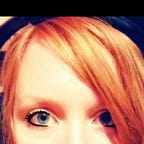Discover Gingerly: Rodrigo Amarante’s new album Drama
Quest’articolo è disponibile anche in italiano.
On July 16th Rodrigo Amarante released his new album, Drama, the follow-up to his 2014 debut album Cavalo. Contrary to what you might already think, it wasn’t the umpteenth result of 2020's lockdown. Amarante started working on it in 2018, during a session with his bandmates “Lucky” Paul Taylor, Todd Dahlhoff, and Andres Renteria. Then, he continued writing and recording throughout 2019, taking old songs from the closet and creating new ones.
When Los Angeles went into lockdown, he found himself isolated, as the rest of us did, and decided to add some overdubs before mixing with the distant help of Noah Georgeson. This was the overall practical evolution of Drama, whereas for the artistic part I got the chance to ask him some questions, which in some cases remained unanswered to give listeners the task of giving their own interpretation.
- Hi Rodrigo and thank you for granting me this interview. How are you doing?
I’m alright, thank you. And thank you for the interest.
- How are you living these summer days after the lockdown?
Things aren’t normal here, there’s a new mask mandate and cases are spiking again because so many people don’t want the vaccine so I’m still in relative isolation. But I’ve been surfing so that helps my sanity.
- Have you got the chance to go back to Brazil this year?
No
- Let’s talk about your wonderful new album, Drama. First of all, what does the artwork represent?
It is an abstract work, it doesn’t represent one particular thing. It represents whatever one sees in it. I see a duality, a vessel like enclosure and an architecture on top which to me feels like memory, the construction of our myths and tales, hollowed out being held by magnetic force. But one could see a hypo eating a watermelon or their first fallen tooth, a trip to jamaica… it’s not an enigma so it doesn’t have one answer.
- You said that Drama represents the idea of wearing fancy or casual clothes just to hide away, and that it is an instrument to look behind the holes of a mask. Can you tell me more about this
concept?
What I said is not quite that. I was using clothes as a metaphor to illustrate the the paradox that being naked, or dressed very plainly, could be a way to conceal — one’s intention — whereas dressing up, nothing to do with it being fancy or not — colorfully, extravagantly, wearing makeup, could be understood as a means to reveal because it puts the fantasies and intentions in the forefront. But this is just something I said somewhere to lustrate the paradox that’s closer to the idea of drama: that the search for a true expression, something pure from the soul, sounds a bit naif and concealing of the bias and intention we all carry when we consider that our voices are an amalgam of the voices we’ve heard through life, especially in the beginning. Drama is the exercise of visiting these voices, hearing what they have to say, wearing those masks as a way to find music. In that sense our voice, something that we grow to believe can be pure, a thing that emerged in us unique and directly connected to the soul, I’m treating here as a construct, a resonance. So, as a method, instead of chasing my own tail with the search for pure expression I am reenacting these voices as if they are not mine, wear the masks I fabricated when I was inventing being an adult, pretending to be a grown up, to hear these voices, track them back, this theater I am. In the end, it is still a search for the self, but disguised, like wearing a mask looking through it to the mirror.
- What did you discover of yourself while recording it?
That my voice is made of echos of the voices I grew up listening to, that memory is a coloring book, and that enacting is a way to find the self. I was reminded that the mask does a fun and useful thing to the mirror.
- Can you give me a little introduction for each song?
I don’t have anything to say to introduce each song, they shouldn’t need any introduction, I find these things a drag honestly. Unless there’s a specific question I don’t see the point, don’t know what to say… They have enough in them, perhaps even too much already.
- Is there a one track out of it you are most attached to?
I don’t understand what you mean by being attached to a song. Once they’re out they’re not mine anymore.
- Like most Italians, I’ve first known you thanks to Tuyo, the amazing opening theme you created for Narcos. Can you tell me how you first got into the project?
The creator of the show liked my records and reached out. I was only given a script and I liked that there wasn’t anything filmed yet so I could make my own world around it, create the scene that led me to write the song.
- How much did Narcos increase your audience?
I don’t know, it’s a great success so a lot of people discovered my albums through that but I have no idea.
- Have you been working on other tv shows recently?
No.
- Which tv shows, films and soundtracks have you liked lately?
I really liked Azazel Jacobs’ new film “French Exit”.
- One special record you would definitely bring with you on the mythical desert island? Why?
It’d be John Cage’s 4'33. Because it’d be a reminder to live in the moment and listen to what’s around me.
- Last question, can you suggest three emerging artists that you reckon worthy of being listened gingerly?
